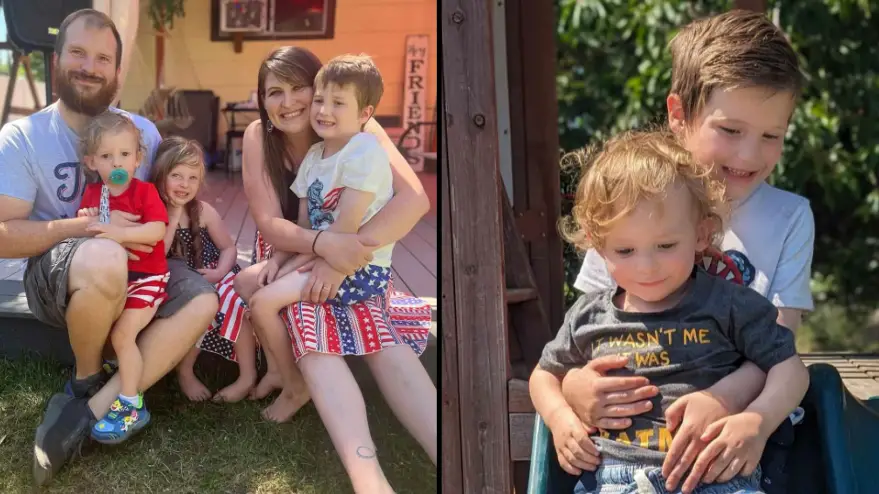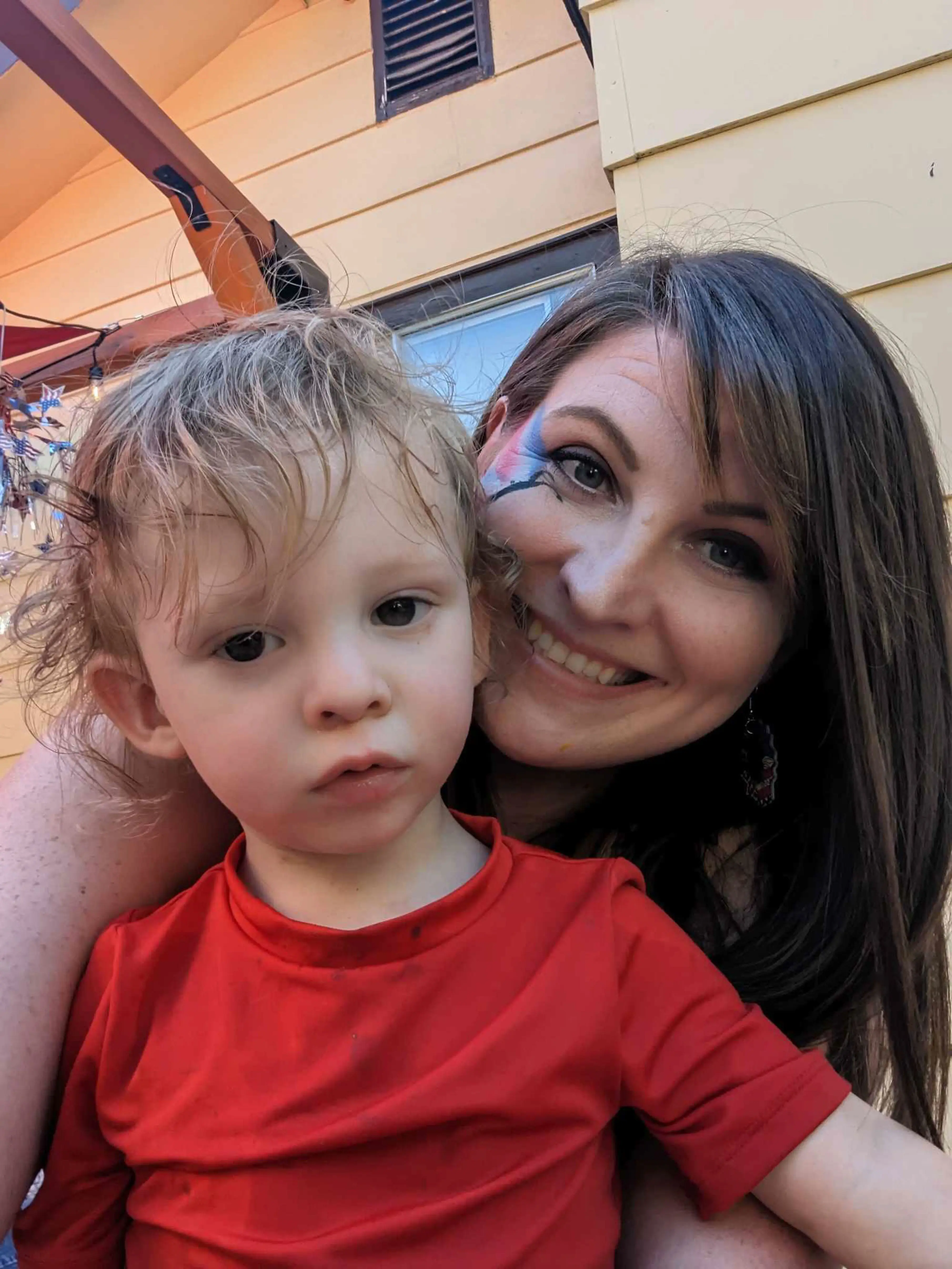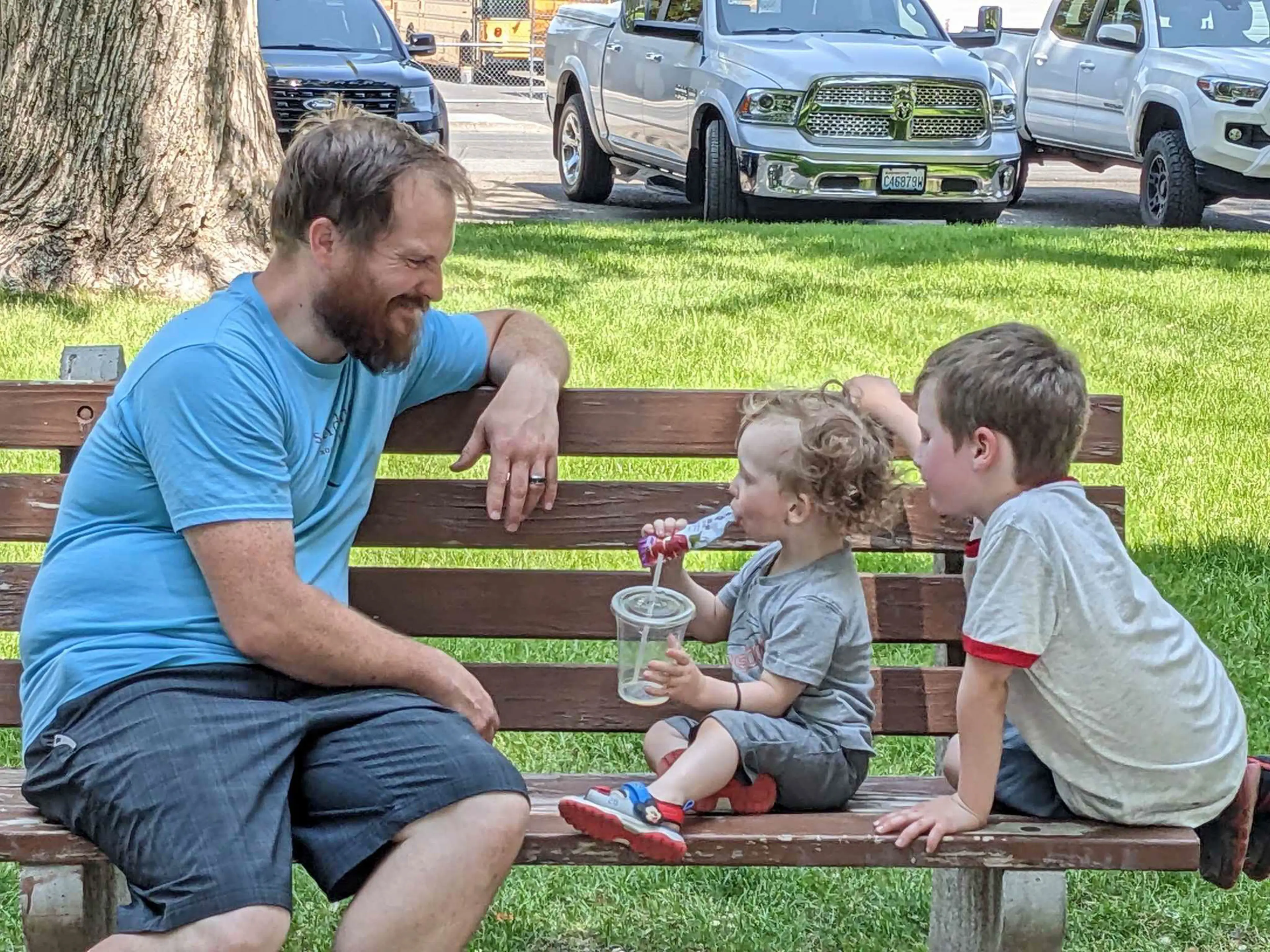
Two parents are shattered after their young sons received a devastating dementia diagnosis.
While the disease is commonly synonymous with the elderly, Kristian and Bryden Tucker were shocked to learn that their two sons, Michael, six, and Oliver, two, had Batten disease.
Batten disease is a rare condition, otherwise known as childhood dementia, that causes the brain to gradually shut down.
Michael was initially diagnosed after experiencing severe seizures, which prompted the rest of the family to get tested.
Advert

Along with two-year-old Oliver being diagnosed, Kristian, Bryden, and their four-year-old daughter, Talia, all carry a gene that raises the risk.
The fatal disease means the brothers will suffer from seizures, loss of speech, motor skills, eyesight and drastically reduced life expectancy.
According to Boston Children’s Hospital, some children die in early childhood, while others may be able to live into their teens or twenties.
Life expectancy is highly dependent on the age symptoms begin to appear.
Kristian said of the diagnosis: “I'd never heard of Batten disease, so I Googled it straight away. I just broke down in hysterics. How could this be happening to my baby?”
She continued: “It had gone completely under the radar, we never knew anything about it and there had never been anything similar that we knew of in our near family history.”

The mother admitted to falling on the floor upon learning of Michael’s condition and had to go through it all again with Oliver.
Fortunately, the two brothers are receiving surgery to slow down the progression of the illness and will begin treatment aimed at giving them a ‘better quality of life’.
“Michael is aware that he had seizures, but we just tell the kids that they are sick and we have to keep going to hospital to try and stop them from getting even sicker,” Kristian said.
“How do you explain to a child that they have limited time? We’re putting it off for as long as possible.”
You can donate to their GoFundMe here.
Boston Children’s Hospital reported that roughly one in 100,000 live births worldwide are affected by Batten disease, and there is currently no cure.
However, an enzyme replacement therapy that appears to slow disease progression recently became available for children.
Gene therapy is also being investigated to replace the mutated genes that cause Batten disease with healthy, functioning copies.